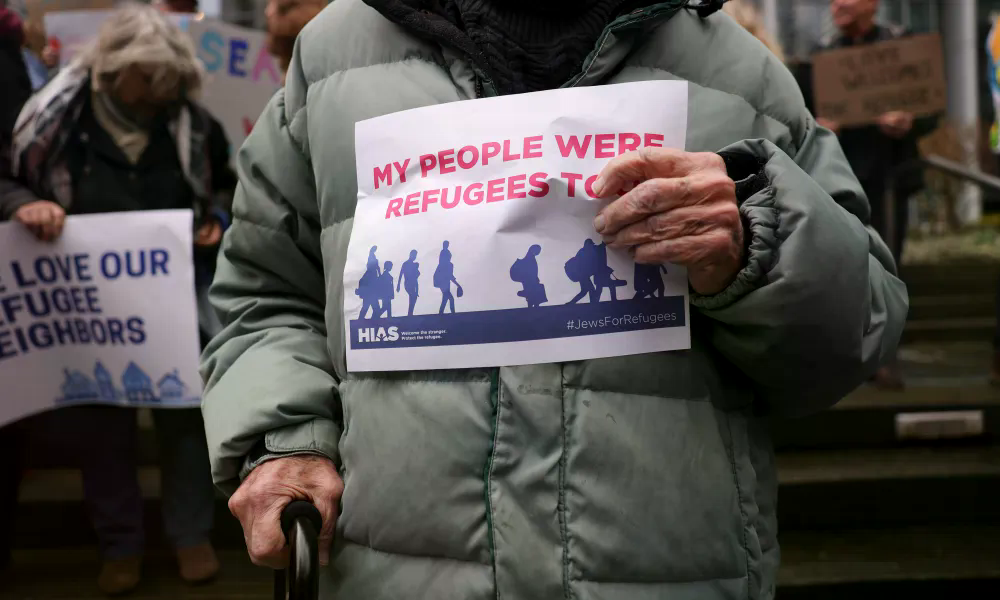
Washington, DC – U.S. President Donald Trump has announced the lowest refugee admission cap in the country’s history, limiting entry to just 7,500 individuals for the fiscal year 2026. This decision marks a significant shift in U.S. refugee policy and has drawn widespread criticism from advocacy groups and international organizations.
The announcement was included in a presidential document published on Thursday but dated September 30. According to the document, the U.S. refugee system would remain largely closed to those fleeing unsafe conditions globally. Instead, priority for the 7,500 available slots would be given to white Afrikaners from South Africa, as outlined in Executive Order 14204.
“The admissions numbers shall primarily be allocated among Afrikaners from South Africa pursuant to Executive Order 14204 and other victims of illegal or unjust discrimination in their respective homelands,” the document stated. However, this claim has been contested by the South African government and top Afrikaner officials, who have rejected the assertion that white South Africans face persecution.
The Trump administration also indicated plans to narrow the groups responsible for managing refugee services. Refugee resettlement grants and contracts currently distributed to various public and private organizations will now be directed to the Office of Refugee Resettlement within the Department of Health and Human Services. The administration claims this change will improve resource alignment, oversight, and accountability for resettlement activities within the United States.
Trump’s refugee cap is the lowest since the passage of the Refugee Act of 1980, which established a formal process for admitting refugees to the U.S. Since then, at least two million refugees have entered through the U.S. Refugee Admissions Program (USRAP). During his first term, Trump sought to suspend the program, leading to legal challenges from immigrant rights groups.
The new cap of 7,500 represents a sharp decline compared to the 125,000 refugees allowed under former President Joe Biden during his final year in office. The current cap will be in effect from October 2025 through September 2026.
According to the United Nations High Commissioner for Refugees (UNHCR), there are currently 42.7 million refugees worldwide. While the U.S. Refugee Act allows presidents to set an annual cap, it does not establish a minimum limit. Critics argue that this lack of a floor could enable further reductions in refugee admissions.
Aaron Reichlin-Melnick, a senior fellow at the American Immigration Council, expressed concern that Trump’s policy appears to redefine who qualifies as a refugee. He noted that the new definition may exclude individuals facing persecution based on race, religion, nationality, or political opinion, instead prioritizing those experiencing “discrimination.”
“This shift undermines the traditional purpose of the U.S. refugee program, which has historically admitted people fleeing ethnic cleansing and other atrocities,” Reichlin-Melnick wrote. He added that the policy now seems to serve as a pathway for white immigration, marking a decline in the program’s humanitarian focus.
The International Refugee Assistance Project criticized the move as politically motivated, arguing that the administration did not follow required congressional consultation procedures. The group called the decision a rejection of the U.S. commitment to supporting displaced populations.
“America’s refugee program was built to reflect our values,” said Sharif Aly, president of the International Refugee Assistance Project. “The thousands of individuals we’ve closed our doors to represent missed opportunities for communities and economies to benefit from their contributions.”
Trump’s announcement did not provide specific reasoning for the drastic reduction in refugee admissions, stating only that the cap was “justified by humanitarian concerns or is otherwise in the national interest.” His broader immigration crackdown has faced resistance from advocates who had hoped the refugee program, traditionally supported across party lines, would remain unaffected.
Support for the refugee program has grown in recent years due to the U.S. withdrawal from Afghanistan, with many politicians backing pathways for Afghans who worked with U.S. forces. However, under Trump’s second term, the focus has shifted toward white Afrikaners. In February, he issued Executive Order 14204, which cut aid to South Africa, citing “shocking disregard” for Afrikaners and prioritizing their humanitarian needs.
The first plane carrying white South Africans admitted under the new program arrived in the U.S. in May, signaling the implementation of the administration’s revised refugee policy.


